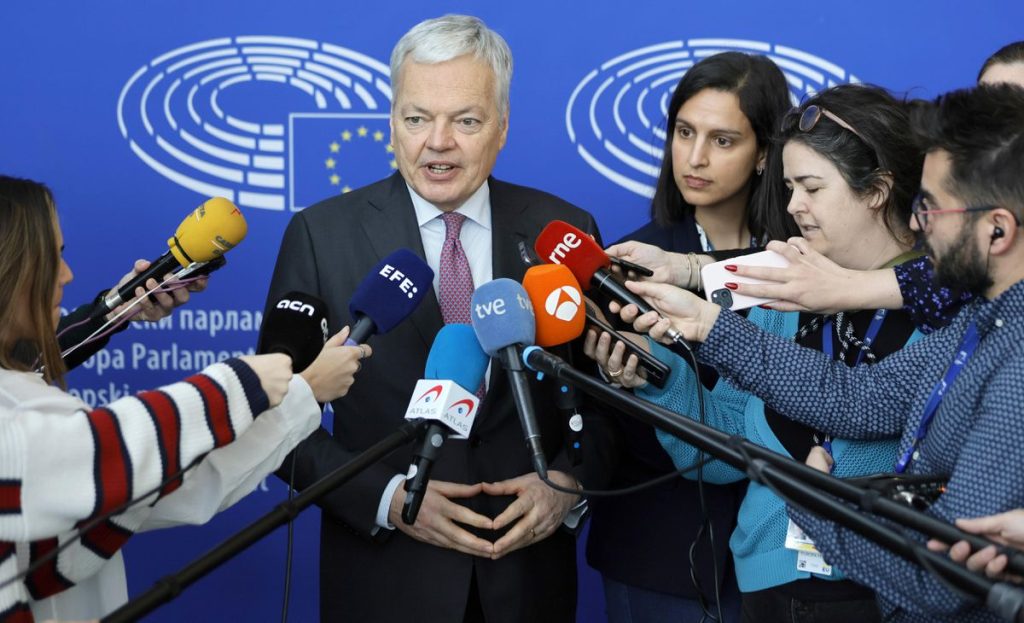Didier Reynders, the former Commissioner of Justice of the EU, has left his position early to campaign for the position of Secretary General of the Council of Europe. Reynders, who was acting as a mediator between the PSOE and the PP in negotiations to renew the General Council of the Judiciary (CGPJ), had requested a leave of absence from the President of the Commission, Ursula von der Leyen, which was supposed to begin on April 25. However, Reynders decided to advance his departure, changing his social media profiles to reflect his new candidacy and status as Commissioner of Justice on leave. The European Commission announced that his portfolios will be distributed among other commissioners until Reynders decides to return or if a new commissioner is appointed.
Reynders had expressed his desire to continue as a mediator in the negotiations to renew the Spanish CGPJ until the last moment, a matter in which he was very involved for a long time. His decision to take a leave of absence relatively late was seen as an attempt to close this issue. Despite setting a two-month deadline for negotiations as a mediator at the request of the PP, Reynders extended his departure from the Commission to allow more time to conclude talks in Spain. However, without political signals from Madrid, negotiations remained stalled since the last meeting was suspended on March 27.
Since Reynders’ decision to take a leave of absence, both the Commission and Reynders himself have stated that there should be no issues in the Spanish mediation. However, the transfer of such a complex dossier to new hands is likely to further slow down the discussions. Reynders emphasized that the progress of negotiations depends mainly on political will, which he implied was lacking from the parties involved. Despite claiming that a renewal agreement was very close, the PP immediately denied this assertion, highlighting the need for political willingness from both major Spanish parties to engage in dialogue.
The General Council of the Judiciary, the governing body of judges in Spain, has had its mandate expired for over five years due to the PP’s resistance to negotiate the renewal of its members with the PSOE. Reynders was appointed in January to lead structured dialogue to unlock the negotiations, setting a two-month deadline to achieve a resolution. With Reynders’ departure and no agreement in sight, the future of the Spanish CGPJ remains uncertain. The lack of progress in these negotiations could have significant implications for the functioning of the Spanish judicial system, highlighting the importance of finding a resolution as soon as possible.
Reynders’ departure raises questions about the future of the negotiations between the PSOE and the PP to renew the CGPJ, which has been inactive for five years. Despite Reynders’ efforts to facilitate the dialogue, the lack of political will from both parties has hindered progress in reaching an agreement. As the Spanish institutions continue to grapple with the issue of renewing the CGPJ, the need for a timely resolution becomes increasingly urgent to ensure the effective functioning of the judiciary in Spain.


